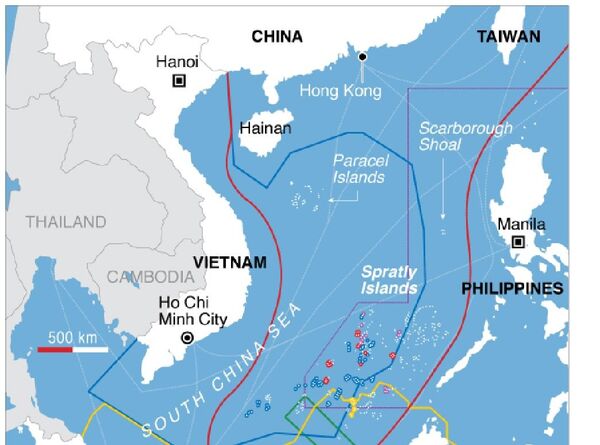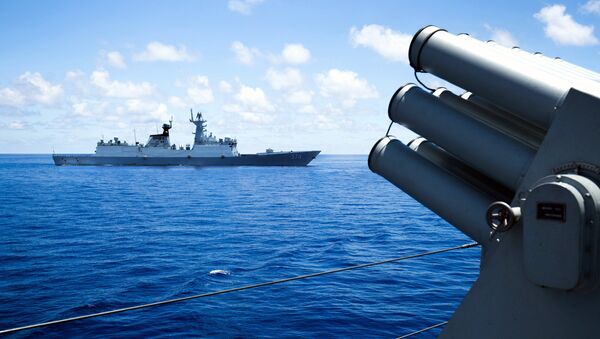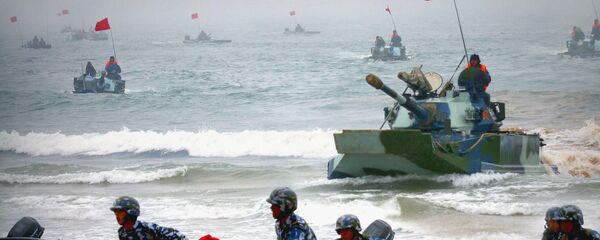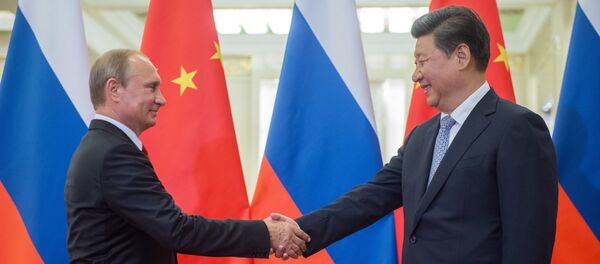During his Friday speech at the US Naval Academy US Secretary of Defense Ashton Carter claimed that China's actions in the South China Sea may isolate Beijing from the rest of the world.
"China sometimes plays by its own rules. The result is that China's actions could erect a Great Wall of self-isolation," Carter said.
Beijing's response was not long in coming: on Monday China's Foreign Ministry spokesperson Hua Chunying said during a daily press briefing that Carter's remark reflected "American-style mentality" and "American-style hegemony."
"Indeed, some people on the American side have physically entered the 21st century while mentally remaining in the Cold War era," Hua said, as quoted by Xinhua; she added that these US policymakers have "made up stories" and "found rivals and enemies everywhere around the world."
She drew attention to the fact that Beijing and Washington have a lot of shared interests and challenges, stressing that the principles of win-win cooperation and mutual respect were in the fundamental interests of the two countries.
It should be noted, however, that Washington's assertive foreign policy toward the South China Sea dispute, Barack Obama's "Asian Pivot" and the Tran-Pacific Partnership (TPP) project prompt serious concerns in Beijing.

"The United States' more frequent military moves in the Sea China Sea in violation of international law and in defiance of protests from a sovereign country concerned, only leads to the escalation of tensions in the region. Over recent years, the United States has insisted on its military operations across the South China Sea, with some senior US officials making statements saying that such moves will be even more frequent in the future," Xinhua wrote Sunday.
Closing its eyes to the fact that that the South China Sea had enjoyed decades of peace and commercial prosperity before Washington's meddling into the region's affairs, the US government is aggravating further tensions by "deliberately blurring the distinction between commercial navigation and military operation in the region," the article stressed.
On Friday, Ma Zhaoxu, China's permanent representative to the United Nations, stated that the South China Sea dispute should be resolved diplomatically by the countries concerned, echoing April's joint communiqué released by the foreign ministers of China, Russia and India.
Much in a similar vein Su Xiaohui, the Deputy Director of the Department for International and Strategic Studies at the China Institute of International Studies, characterized Washington's "Asian Pivot" in his article "Asia-Pacific Rebalance, an unjust strategy that finds little support" published Tuesday by the People's Daily.
The Chinese scholar pointed out that by beefing up its military presence in the Asia-Pacific Washington is undermining the region's stability and triggering concerns among the regional players.
However, the scholar believes that the US strategy will bare a little if any fruit. He recalled that Vietnam has already joined the Regional Comprehensive Economic Partnership (RCEP) as well as the China-led Asian Infrastructure Investment Bank (AIIB).
"Due to its diverse foreign policies, Vietnam will not easily choose sides between major countries, let alone be tied to the US 'chariot'," the scholar stressed.
The crux of the matter is that Washington's strategy is based on "the exclusiveness of America's own interests, instead of inclusiveness."
"It goes against the trend of in-depth development of economic globalization and the epoch tide of peace and development. Unjust and with little support, how can such a strategy be realized?" Su Xiaohui emphasized.





